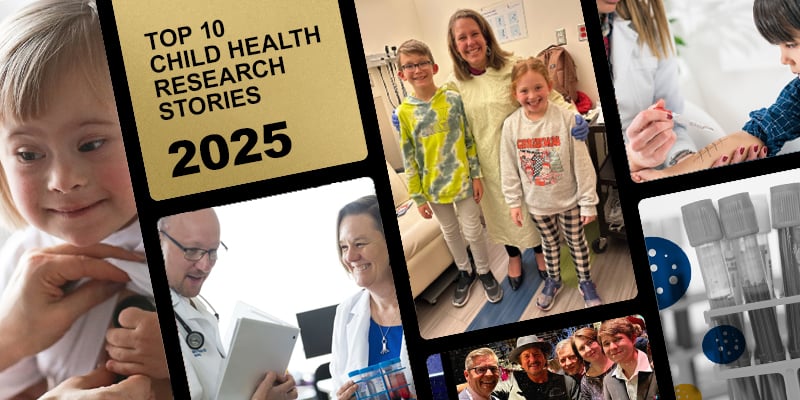The Lupus Research Alliance (LRA) is pleased to announce that the 2023 Global Team Science Award (GTSA) has been granted to an exceptional multidisciplinary research team of experts in immunology, pediatric rheumatology and nephrology, genetics, and data analysis to identify drivers of lupus nephritis in children with the aim of improving its diagnosis and treatment. The 2023 GTSA project will be headed by corresponding investigator Elena Hsieh, M.D., Associate Professor of Immunology & Microbiology and Pediatrics at the University of Colorado, Anschutz School of Medicine.
Established in 2020, the GTSA provides $3 million over three years to a highly synergistic, collaborative research team to catalyze groundbreaking discoveries and revolutionize our understanding of the development, progression and treatment of lupus. Made possible by a generous grant from Bloomberg Philanthropies, the GTSA encourages collaborative teams to apply cutting-edge technologies to shift the paradigm in our understanding of lupus heterogeneity — how the disease affects each person differently — to accelerate the development of novel therapies.
"We are delighted to award the 2023 Global Team Science Award as part of our strategic plan for research to scientists who will apply innovative technologies to investigate immune cell abnormalities and changes in the genetic code of patients with pediatric lupus nephritis," noted Teodora Staeva, Ph.D., LRA Chief Scientific Officer. "Selected from many compelling proposals, this project will explore the heterogeneity of lupus and help inform the acceleration of personalized treatments for lupus nephritis.”
Identifying Genetic and Immunological Determinants of Childhood Lupus Nephritis
The 2023 GTSA team aims to improve the ability of kidney biopsies to predict response to treatment and disease progression, enabling better classification of childhood-onset lupus nephritis and the development of precision medicine. The team will study tissue samples from kidney biopsies from an international group of 300-400 pediatric lupus nephritis patients in five countries, including those in high-risk racial/ethnic groups such as those of African, Hispanic, Native American and Asian racial/ethnic origins who typically have a higher frequency of kidney involvement and more severe disease activity.
The team will use cutting-edge imaging techniques to characterize molecular, cellular and structural changes in patients' kidney biopsies and identify associations between these changes and the patients' disease course, including their response to treatment. Patients will then be grouped into distinct “buckets” based on the changes observed in their kidney biopsies, clinical presentation and clinical laboratory measures, including response to treatment, as well as alterations in their genetic makeup. Grouping patients based on their clinical characteristics will help identify treatments that work best for each group.
Dr. Hsieh commented, “This study could revolutionize the current diagnosis and treatment approach to pediatric lupus nephritis. The current gold standard for diagnosing and monitoring lupus nephritis, kidney tissue biopsy, is not sensitive enough to characterize structural changes in the kidney or predict how a patient will respond to treatment. By identifying drivers of lupus nephritis, the study can shift the diagnosis and treatment strategy from a trial-and-error approach to one guided by underlying immune system and genetic characteristics."
As an expert in clinical and basic immunology, Dr. Hsieh will lead the team and oversee the group of patients from Children’s Hospital Colorado. Co-principal investigators comprising the multidisciplinary research team include:
- Jean-Laurent Casanova, M.D., Ph.D., Levy Family Professor, Rockefeller University. As a pediatric immunologist, Dr. Casanova will use his expertise in genetic causes of immune disease to identify genetic alterations in patients with pediatric lupus nephritis patients using a technique called whole exome sequencing.
- Debashis Ghosh, Ph.D., Professor, Colorado School of Public Health, University of Colorado, Anschutz Medical Campus. A biostatistician, Dr. Ghosh will use his biostatistics and informatics analytical expertise to lead data analysis and integration.
- Jeffrey B. Hodgin, M.D., Ph.D., Associate Professor, University of Michigan, Michigan Medicine. As a renal pathologist, Dr. Hodgin will use his expertise in assessing biopsies to lead the pathological evaluation and scoring of the contributed kidney samples.
- Shaun W. Jackson, M.D., Ph.D., Associate Professor, University of Washington School of Medicine. As a pediatric rheumatologist and nephrologist, Dr. Jackson will use his expertise in pediatric kidney disease and tissue molecular analysis to co-lead the immunological and kidney imaging studies.
- Tiphanie P. Vogel, M.D., Ph.D., Assistant Professor, Baylor College of Medicine. As a pediatric and adult rheumatologist, Dr. Vogel will use her expertise in lupus and specifically genetic causes of immune disease and co-lead the clinical, immunological, and genetic studies.

